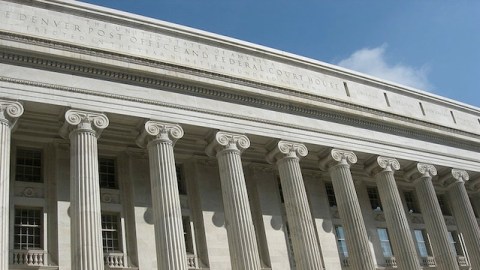Judge Not

There aren’t enough federal judges. With federal judges retiring at the rate of one a week—and being replaced nowhere near that fast—Jerry Markon and Shailagh Murray report in The Washington Post that 101 of the 854 seats on district and circuit courts are currently vacant. That’s nearly twice as many vacancies on the bench as there were when Obama took office. And it means there just aren’t enough judges to handle the federal caseload.
As a result, it can take as many as three years for federal cases to be heard. The courts have been so overwhelmed that 46 of the vacancies have been classified judicial emergencies. Markon and Murray report that the situation is worst in the Southwest, where courts have been swamped immigration and drug cases. The three judges in Tucson—the site of the recent attack on Rep. Gabrielle Giffords (D-AZ) and her constituents—each have 1200 cases before them.
President Obama bears some of the blame. He choose to spend his first two years in office focusing on his ambitious legislative agenda—including health care reform—rather than fight to get his nominees appointed to the federal bench. At the same time, Republicans have taken advantage of Senate rules that make it easy for the minority—or even a single senator—to hold up confirmation hearings indefinitely. Those rules made it possible for them to keep the Democrats from packing the courts with liberal judges the way they themselves packed the courts with conservative judges during the Bush administration. The result is that just 60 new judges were confirmed during Obama’s first two years in office—the lowest two-year total in 35 years.
Senate Majority Leader Harry Reid (D-NV) and Senate Minority Leader Mitch McConnell (R-KY) have reportedly struck a “gentleman’s agreement” not to use the procedural tactics to keep judicial nominees from getting a confirmation vote. But as well-intentioned as that agreement may be, it’s likely to last only as long as neither party wants to use leverage against the other. Not very long, in other words. The Senate also approved a handful of minor reforms—among other things, making it difficult for a single senator to hold up the confirmation process anonymously—but shied away from more substantial procedural reform. And in the long run the crisis on the federal bench is only going to get worse as long as it’s easy for one party to gain political advantage by holding up the confirmation process.
Photo credit: Dtobias





